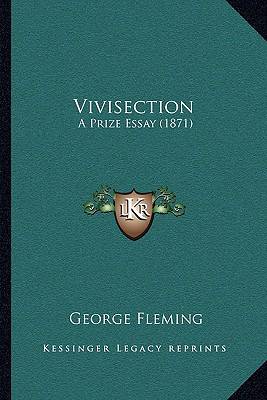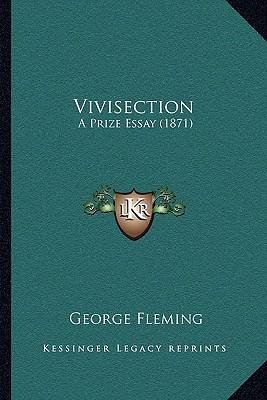
- Afhalen na 1 uur in een winkel met voorraad
- Gratis thuislevering in België vanaf € 30
- Ruim aanbod met 7 miljoen producten
- Afhalen na 1 uur in een winkel met voorraad
- Gratis thuislevering in België vanaf € 30
- Ruim aanbod met 7 miljoen producten
Zoeken
Omschrijving
Vivisection: A Prize Essay (1871) is a book written by George Fleming that explores the controversial topic of vivisection, or the practice of performing surgery on living animals for scientific research. The book was written in response to a competition held by the Victoria Street Society for the Abolition of Vivisection, which sought to raise awareness of the cruelty and ethical implications of this practice.In the book, Fleming presents a detailed analysis of the history, methods, and impact of vivisection on animals and humans. He argues that vivisection is not only cruel and inhumane, but also scientifically unreliable, as the results obtained from animal experiments may not accurately reflect human physiology or disease.Fleming also examines the arguments put forward by proponents of vivisection, including the belief that it is necessary for medical progress and the advancement of knowledge. He challenges these arguments, pointing out that there are alternative methods of research that do not involve the use of live animals, and that the benefits of vivisection are often overstated.Overall, Vivisection: A Prize Essay is a thought-provoking and well-researched work that raises important questions about the ethics of animal experimentation and the role of science in society. It remains a significant contribution to the ongoing debate on this controversial topic.This scarce antiquarian book is a facsimile reprint of the old original and may contain some imperfections such as library marks and notations. Because we believe this work is culturally important, we have made it available as part of our commitment for protecting, preserving, and promoting the world's literature in affordable, high quality, modern editions, that are true to their original work.
Specificaties
Betrokkenen
- Auteur(s):
- Uitgeverij:
Inhoud
- Aantal bladzijden:
- 64
- Taal:
- Engels
Eigenschappen
- Productcode (EAN):
- 9781165750641
- Verschijningsdatum:
- 10/09/2010
- Uitvoering:
- Paperback
- Formaat:
- Trade paperback (VS)
- Afmetingen:
- 152 mm x 229 mm
- Gewicht:
- 99 g

Alleen bij Standaard Boekhandel
+ 54 punten op je klantenkaart van Standaard Boekhandel
Beoordelingen
We publiceren alleen reviews die voldoen aan de voorwaarden voor reviews. Bekijk onze voorwaarden voor reviews.











